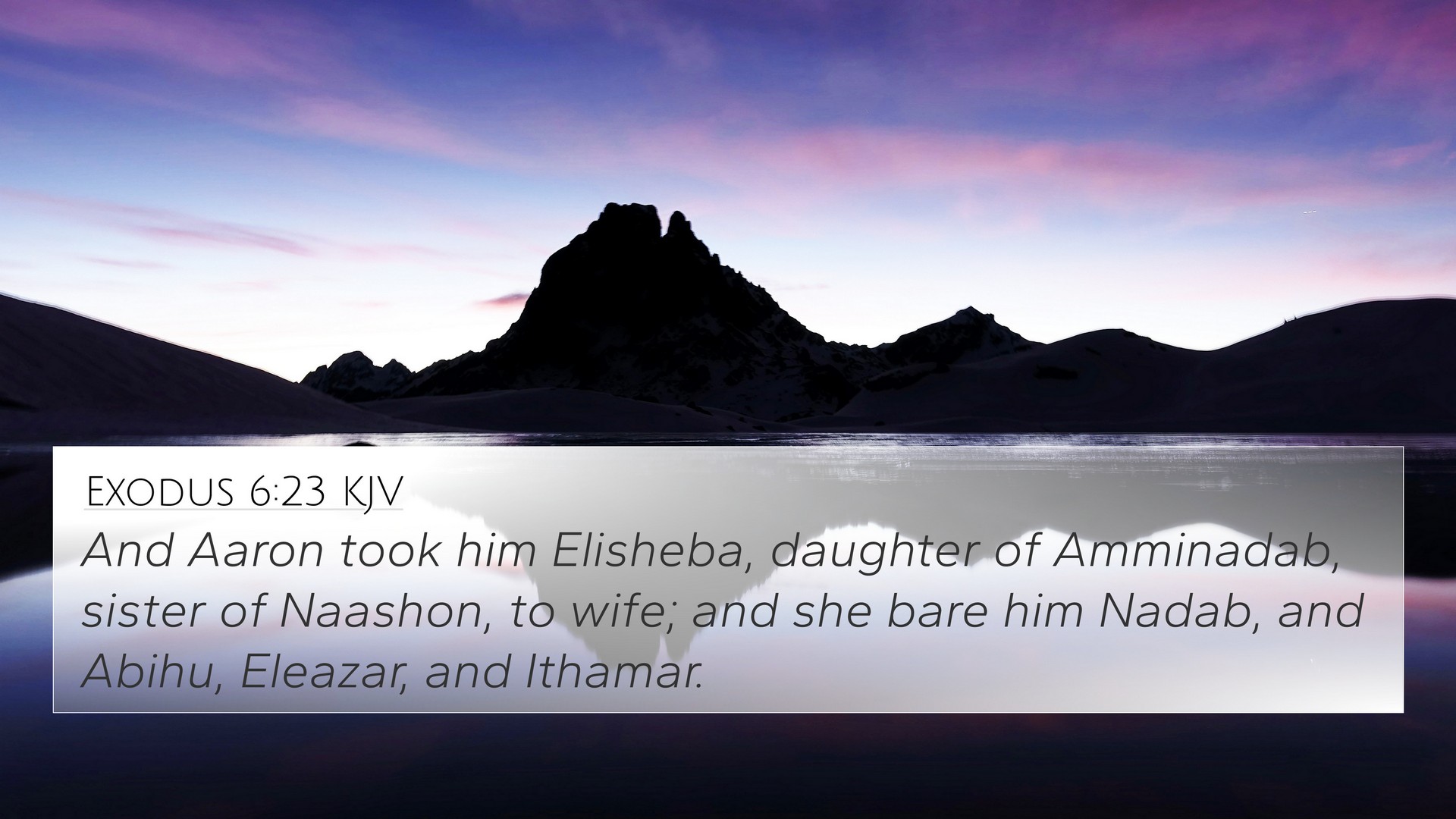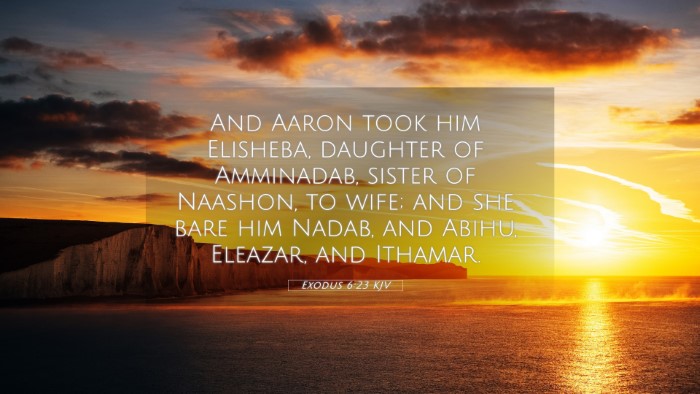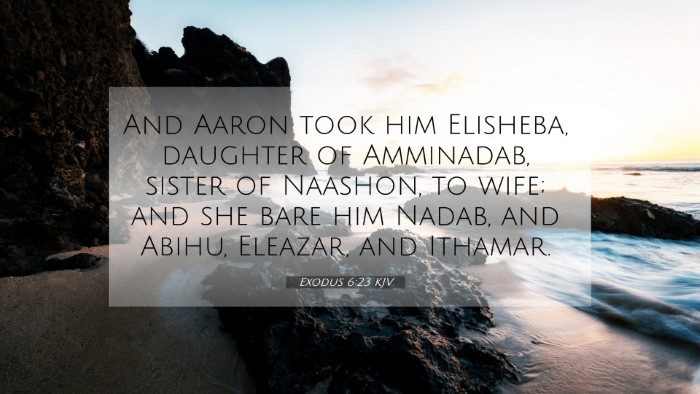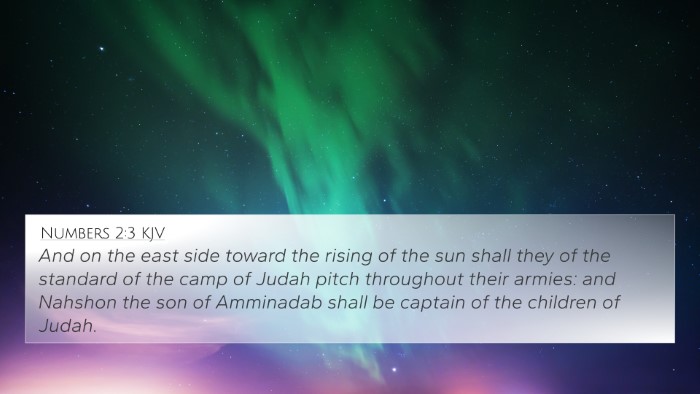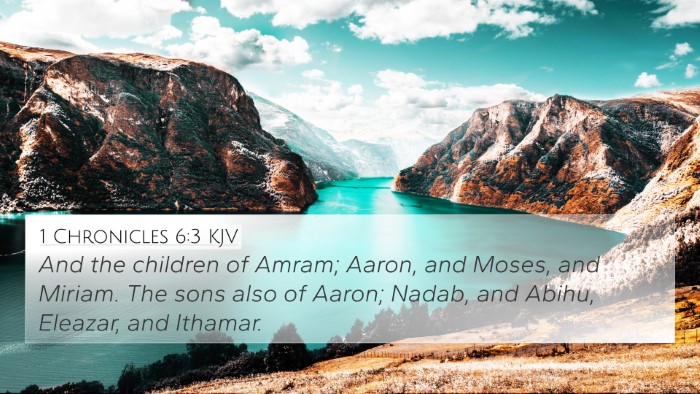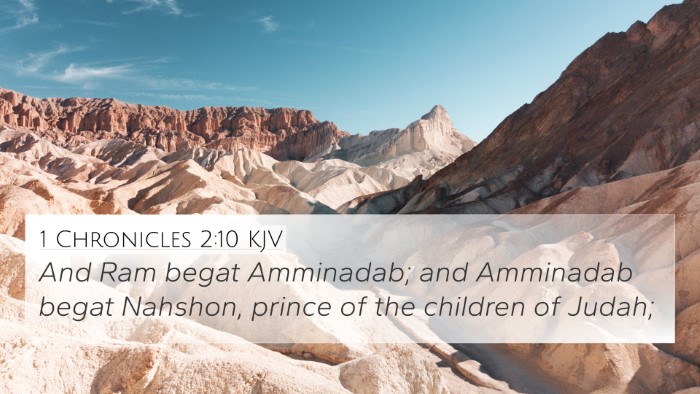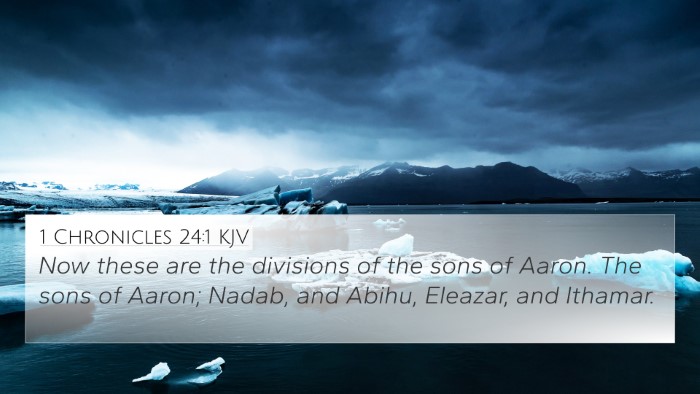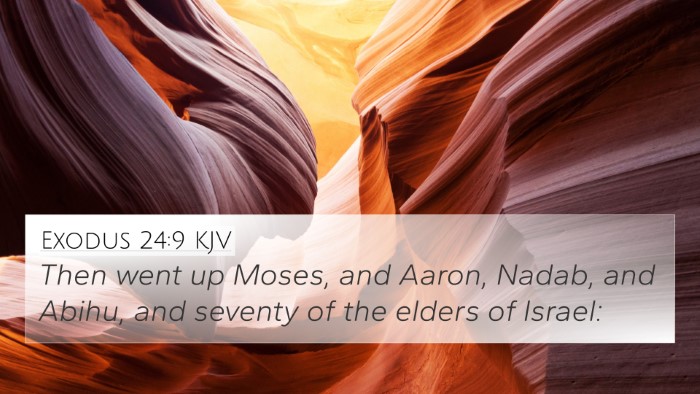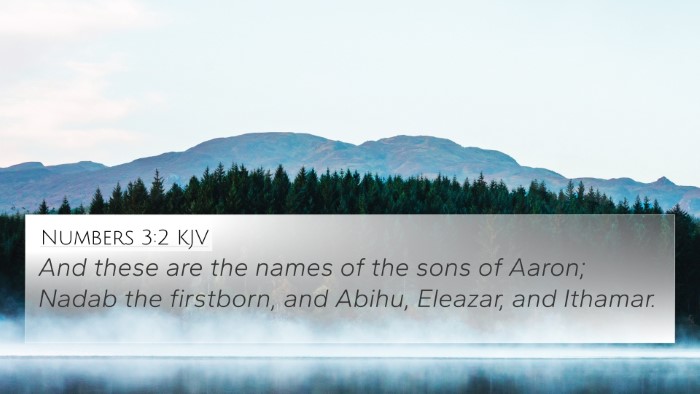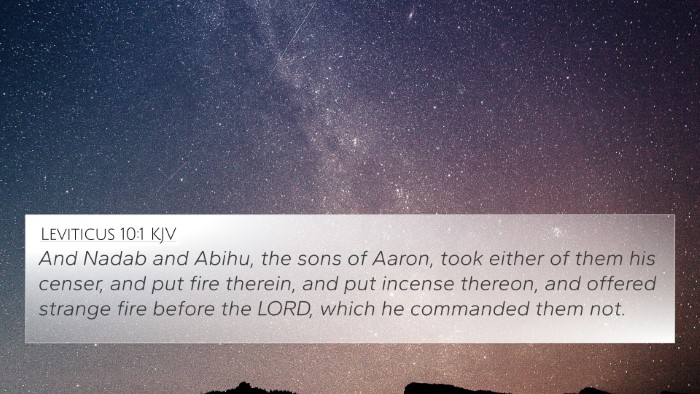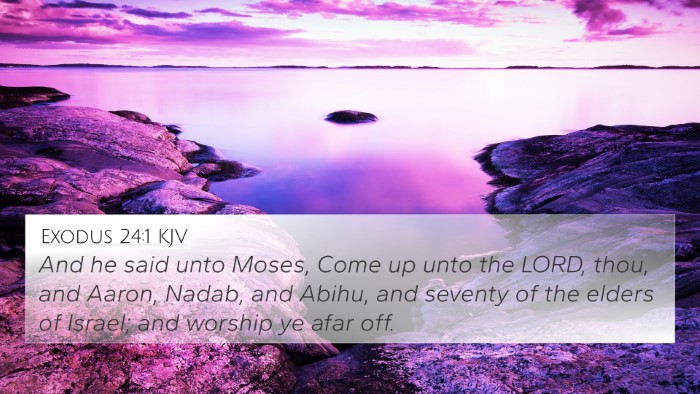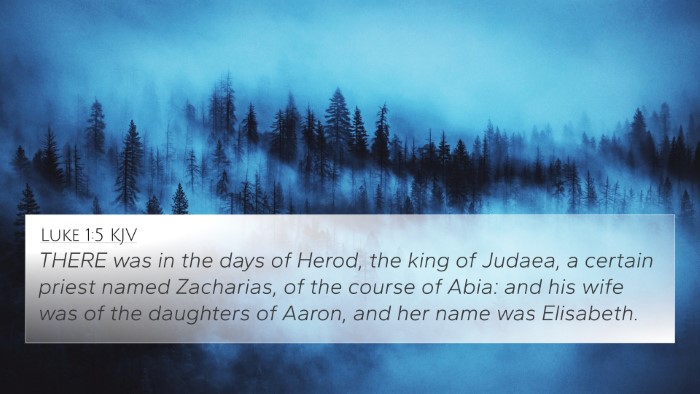Understanding Exodus 6:23
Exodus 6:23 states: “And Aaron took him Elisheba, daughter of Amminadab, sister of Naashon, to wife; and she bare him Nadab and Abihu, Eleazar and Ithamar.” This verse highlights the lineage of Aaron, the high priest, and emphasizes the importance of family connections in the narrative of Israel's priesthood during the exodus from Egypt.
Verse Summary and Context
The context of Exodus 6 involves God's reaffirmation of His covenant with the Israelites, encouraging Moses amid the ongoing oppression in Egypt. Aaron's marriage is mentioned as part of establishing a spiritual and familial foundation necessary for the priestly duties that Aaron and his descendants would uphold. This connection between family and leadership is crucial in understanding the succession of priestly roles.
Commentary Insights
Combining insights from renowned public domain commentators:
- Matthew Henry: He highlights that the mention of Aaron's family underscores the significance of moral and spiritual lineage in service to God. Aaron's choices influence future generations and establish a narrative continuity essential for the Israelite community.
- Albert Barnes: Barnes notes that the inclusion of Aaron's wife's lineage (Elisheba) emphasizes God's providence in established lines of service. It reflects the divine order in familial roles that uphold religious traditions.
- Adam Clarke: Clarke suggests that through marriage, Aaron is shown as not only a religious leader but also a family man, reinforcing the importance of community and familial bonds within the structure of Israel's worship system.
Bible Verse Cross-References
Exodus 6:23 is connected to several other verses that enhance our understanding of its implications:
- Genesis 46:20: Discusses the genealogy of the family, connecting the lineage back to Jacob.
- Leviticus 10:1-2: Refers to Aaron's sons Nadab and Abihu, linking the immediate consequences of priestly duties.
- Exodus 28:1: Outlines the role of Aaron and his sons in priestly service, rooting the importance of their lineage.
- 1 Chronicles 6:3-15: Chronicles Aaron's descendants, establishing their significance in Israel's history.
- Hebrews 5:4: Discusses the idea of calling within the priesthood, reinforcing the concept of lineage and divine selection.
- Numbers 3:2-3: Lists the names of Aaron's sons, further detailing their roles in service.
- Malachi 2:4-5: Highlights the covenant with Levi, connecting back to Aaron's family line and their responsibilities.
Thematic Connections
There are several thematic Bible verse connections found within this passage:
- Divine Covenant: The establishment of familial lines illustrates God's ongoing covenant with His people, echoed in various scriptures (see Genesis 17:7).
- Spiritual Legacy: The emphasis on lineage highlights how spiritual responsibilities are passed down (see Proverbs 13:22).
- Order of Worship: Establishing a priesthood reflects the need for proper conduct in worship (see Exodus 28:43).
- Impact of Family: The role of family in forming leaders (see Deuteronomy 6:6-7).
Tools for Bible Cross-Referencing
To dive deeper into cross-referencing Bible verses, consider exploring some helpful resources:
- Bible Concordance: A tool for finding specific verses based on keywords.
- Cross-Reference Bible Study Guides: Structured methods to track and understand biblical connections.
- Comprehensive Bible Cross-Reference Materials: Collections that create a cohesive picture of related themes.
Conclusion
Exodus 6:23 serves as a vital part of the narrative surrounding Aaron’s priesthood and the lineage of the Israelite leaders. Through the insights gathered from various commentaries, we gain a deeper understanding of the significant roles family and genealogy play in biblical worship and the continuity of God’s promises. By cross-referencing this verse with others, both in the Old and New Testament, the connectivity of biblical themes becomes clearer, inviting a richer interpretation of scripture.
